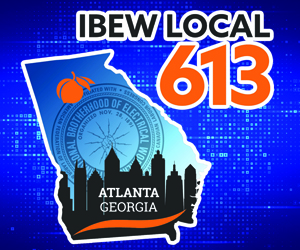GHSA executive director Dr. Ralph Swearngin recently spoke with Score Atlanta’s Alex Ewalt about some of the current issues facing high school sports in the state. Here’s what they talked about:
Alex Ewalt: Has the GHSA considered re-seeding the basketball brackets for the tournaments?
Ralph Swearngin: The big problem with seeding is how to do it and [what to base it on]. I’m not sure season won-loss record is necessarily the way to go. It’s very difficult to get people to agree, especially when they’re involved as coaches in the sport. … My viewpoint was something that an old coach told me when I first got into coaching. He said, people that worry about seeding are worried about who’s going to come in third or fourth. … When we start hearing the problems with bracketing and seeding it’s in the early rounds. And a lot of times it’s because a really good team, for whatever reason, doesn’t win its region.
Illegal recruiting is an issue that is often on the minds of high school basketball fans. Could you tell me specifically what is considered recruiting in high school sports?
It has to be someone directly related to the school, someone who is school personnel, who contacts the student and encourages them verbally or offers them things to change from one school to another. If a coach has a player in a summer program and then the player transfers to the school, the kid would probably be ineligible. Or if I give you private lessons and you come to my school then that would be illegal. … Most of the time the school’s people don’t have to recruit. The recruiting is done by parents, it’s done by coaches in travel ball and AAU. A lot of people get concerned because people abide by our rules and still a particular school gets loaded with talent. But as long as people live in a free country, it’s very difficult for us as an organization to say, even though you abided by the rules and sold your old house and moved to a new house, you still can’t play for that team.
It seems this year the Metro Atlanta basketball fans were upset at their travel times to the sectional sites. What is the system for choosing venues?
Number one, we have to have a venue that holds enough people. For AAAA and AAAAA it’s got to be a minimum of 5,000. We really would like something closer to 7,000. I heard [last week] about this unrest in Metro Atlanta and it astounded me. … If we are not able to secure places like Georgia State, Georgia Tech and the University of Georgia, there’s just no place to do it. In fact, for a couple of years we had to play the third-round games at high school gyms, and we heard a lot of complaints about that. I dare say the complaints about having to travel from Atlanta to Carrollton will be looked at as humorous by the people who have to travel from Augusta to Columbus or from Thomasville to Savannah. Unfortunately that happens and there are not central locations that can meet everybody’s needs.
Provided it’s approved in March, next year’s region realignment is very important because it will begin the first four-year realignment cycle, as opposed to the two-year cycle. What are your thoughts on the new system?
Interestingly, coaches wanted that because if they’re in situations where they’re shuffling around from one region to another, it’s difficult for them to maintain relationships that help them build high-money gates and rivalries. And from our viewpoint it’s great because it’s like having a root canal once every four years instead of once every two years.
There are a number of new schools opening next year. What do you think their impact will be?
It always amazes me. People say our schools are overcrowded, and they open up a new school and fill up that school and the other schools are still overcrowded. We really don’t know to what degree the housing crunch is going to redistribute population in our state, whether people are actually going to be leaving the state or coming in because it’s more attractive. There are a whole lot of social issues right now that we really just can’t account for.
So far, what are your thoughts on the effectiveness of eliminating the multiplier (which, before this year, multiplied the student populations at private schools by 1.5, oftentimes necessitating they play in a higher class)?
It’s way too early to make any comparisons. I’m sure everybody is making comparisons on their own, with or without data. We did a yearlong study and found out that the multiplier didn’t do anything. The private schools that were winning and doing well and making final four appearances before the multiplier made the same amount of Final Four appearances with the multiplier. It didn’t really matter, and it was catching the attention of legislators who said it’s not fair to say that in some schools kids count as one and in other schools kids count as one and a half.
Ewalt can be reached at aewalt@scoreatl.com.






















































